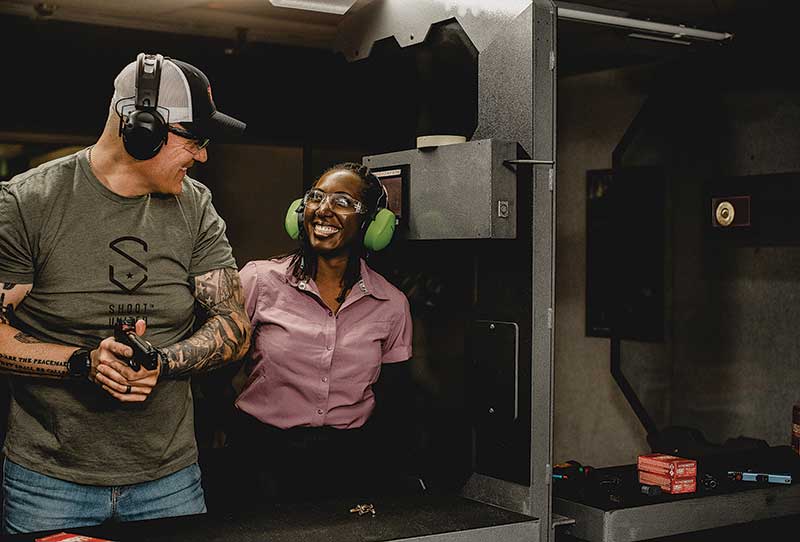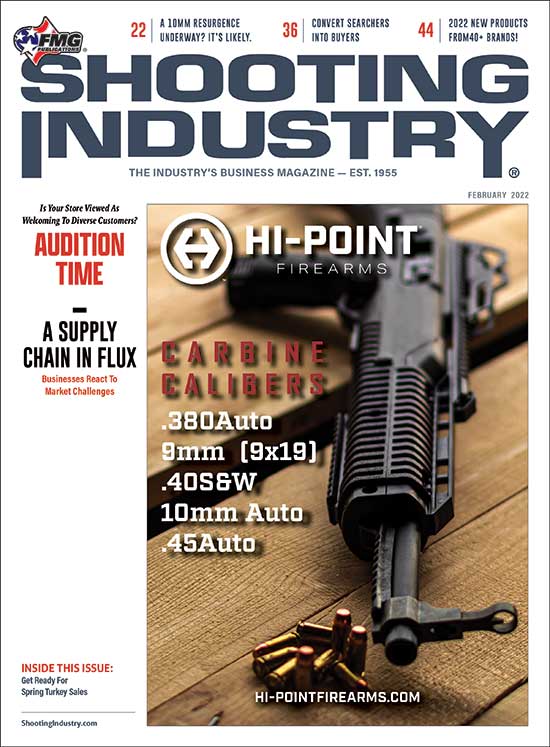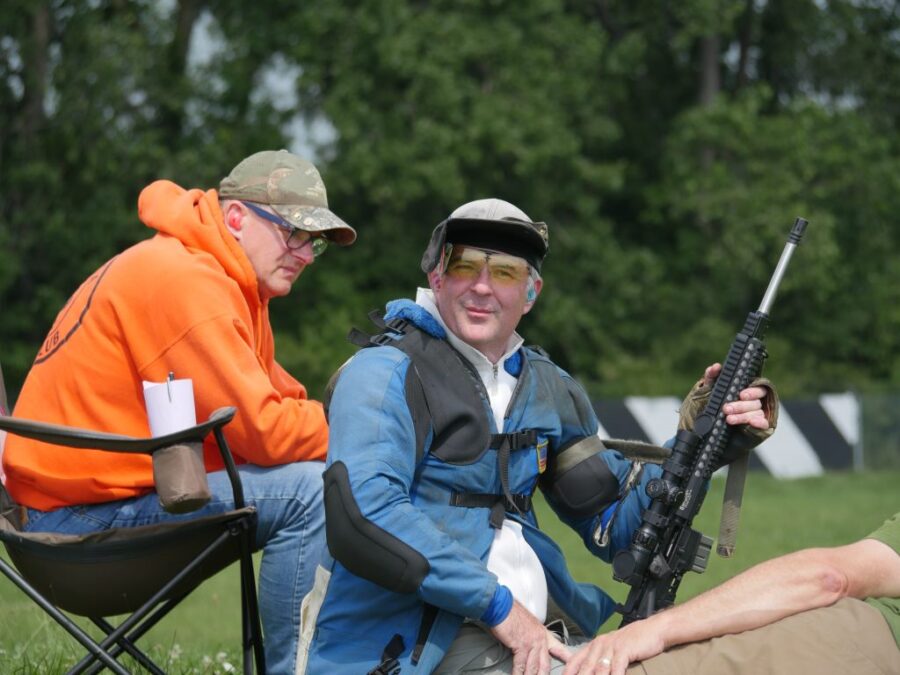Audition Time
Is Your Store Viewed As Welcoming To Diverse Customers?
Geneva Solomon remembers well the day she shopped for her first gun. It was 2009 and she’d come to the realization she wanted to take more responsibility for her family’s safety.
So, she ventured into a local gun shop and had an experience that would later shape the way she and her husband approached customer relations at their own gun store.
She waited two hours to see a salesman, who offered virtually no guidance with her selection, despite being told she was a first-time buyer. Near the end of the transaction, she asked if he knew of anywhere to get training. He responded with a terse: “No.”
“He was just a jerk, to be honest,” recalled Solomon, now co-owner of Redstone Firearms, the only Black-owned gun store in California.
She left this first encounter with a .40-caliber Beretta PX4 Storm and a lesson about how not to treat customers — particularly women and people of color. It’s a lesson that has served her well over the years, with Redstone building a diverse clientele at its locations in Burbank and Ontario.
“We want people from the Black and Brown communities to participate in the 2A environment. It’s a right they have.”
Geneva Solomon, Co-Owner Redstone Firearms Burbank, Calif.
“It’s a friendly environment, regardless of what you look like,” Solomon said.
So it was, perhaps, no surprise their business saw no significant increase in female or minority shoppers during the havoc of the past 18 months. Instead, Redstone saw an across-the-board bump in all customer segments.
If recent events have taught us anything, it’s there is a growing national appetite for guns. We know guns have been selling at record rates, with the National Shooting Sports Foundation (NSSF) estimating 40% of sales in 2020 were to first-time buyers, some 8.4 million people.
Delving further into the data shows women and minorities are a major part of this trend. In 2020, there was a 56% increase in purchases by African Americans compared to the previous year. And stores across the nation have reported increases in sales to Hispanic Americans and Asian Americans, according to the NSSF.
It’s clear there’s a major opportunity for the industry — both to increase public support for Second Amendment issues and to build business. In a sense, the industry has been in the midst of a lengthy audition period with these first timers, noted Jacquelyn Clark, owner of Bristlecone Shooting, Training & Retail Center in Lakewood, Colo.
“It’s been an audition for whether they come back to your store. And also, an audition for whether they come back at all,” Clark said. “It’s important for ranges and retailers to engage these new customers.”
Reaching Out
In Redstone’s early days, Solomon catered heavily to law enforcement clientele, given her husband’s police background. But over time, they started reaching out to nearby communities with free introductory firearms classes. They wanted everyone to know they were welcome at Redstone.
“We want people from the Black and Brown communities to participate in the 2A environment. It’s a right they have,” she asserted.
The efforts have paid off. Any customer walking through the door is just as, if not more, likely to be Black or Brown as they are to be white. Solomon worries over what she sees as an unfortunate culture found in many of the nation’s gun stores. Too often, people of color run into environments where they are effectively discouraged from buying a gun.
It’s one of the reasons she rejects the oft-cited narrative that minorities aren’t interested in guns, hunting and other shooting sports.
“You have to be shown something to know if you are interested or not,” Solomon informed.
Those atypical customers also need to feel welcome, according to Larry Hyatt, owner of Hyatt Guns, in Charlotte, N.C.
“It starts and ends with the staff. Once you get people in the door, it’s all about their experience.”
Jacquelyn Clark, Owner Bristlecone Shooting, Training & Retail Center Lakewood, Colo.
Over the past 18 months, his store has seen a significant increase in minority shoppers. The biggest jump has been African Americans, who now represent a major part of his business. “It used to be 25%; now it’s 50%,” he observed.
One of the keys to this growth: “A smile and a greeting that’s sincere,” he remarked.
In many ways, this simple thought gets to the heart of this issue. No one wants to shop where they aren’t wanted. Too often, gun stores seem to function almost as social clubs, where new customers are made to feel anything but welcome.
“There are a lot of stores where the employees know a lot about guns, but they don’t particularly like people,” Hyatt noted.
“It’s about the experience.”
Perhaps the quickest way to change the way your shop relates to women and minorities is by taking a hard look at your employees.
“It’s important to diversify your staff if you’re in a city with diversity. Find good people who know the gun business,” advised Hyatt, whose own store has made an effort to hire both female and African American employees. “We’re just so much more aware that we’ve got to make every customer feel welcome.”
It’s critical to have employees who match the vision you have for your shop, suggests Clark in Colorado, where Hispanic Americans and Asian Americans are significant customer segments.
“You can’t market yourself as being open and inclusive if you only hire white men over 40 as your staff members,” she stated.
“You have to be shown something to know if you are interested or not.”
Geneva Solomon, Co-Owner Redstone Firearms Burbank, Calif.
Before opening her shop in suburban Denver, Clark spent 15 years in the corporate world, where she was involved in hiring and human resources. She has called upon this background to develop her own lengthy hiring practices.
One of the most important parts of the process is having applicants spend several hours shadowing staffers. The candidate gets to see what the job is about. It also gives shop employees a chance to get a better feel for the candidate’s attitudes and biases.
Of course, there are other things you can do to make your store more appealing to minorities and women. Keep your targeted customer base in mind, for example, when choosing images for marketing and advertising. If you want Asian American customers, include photos of Asian Americans.
At the end of the day, nothing you do through marketing will matter if you don’t have the right employees.
“It starts and ends with the staff,” confirmed Clark. “Once you get people in the door, it’s all about their experience.”
Different Needs?
You may find yourself wondering if there are things you should be stocking to appeal to a more diverse customer base. When it comes to minority shoppers, there’s no significant difference when it comes to what those shoppers are looking for, according to these shop owners.
Hyatt said they’ve noticed Black customers are less likely to buy older-style guns, including revolvers and classics like the Browning Hi-Power.
“Perhaps the quickest way to change the way your shop relates to women and minorities is by taking a hard look at your employees.”
“It’s GLOCKs and Smith & Wesson Shields and other easy-to-carry guns,” he shared. “I’m also surprised at how many AR-rifles and pistols we sell to urban customers.”
There are, however, some more notable differences in what your female customers are looking for.
One of the quickest ways to turn off a female shopper is by ignoring the appearance of your shop. You don’t need a brand-new facility, but it never hurts to do some cleaning.
“Women don’t like a restroom with spiders in it,” Hyatt reported. “They aren’t going to tolerate a dirty restroom.”
He also suggests a change in mindset regarding the way salesmen react when approaching a male/female couple: “The female customer is just as likely to be the buyer as the male customer. Don’t assume anything.”
In Colorado, Clark’s store carries a wider variety of CCW options, including purses, fanny packs and certain holster brands (Alien Gear is popular) aimed at women.
Those customers also tend to be more interested in non-lethal options, like pepper spray.
“There are a lot of products we carry to cater to women,” Clark affirmed.
Not on that list, however, is a display case full of brightly colored guns. They tried that, but found women are just as happy with a black or stainless gun.
“Most women don’t want a pink gun, even if their husbands think they do,” Clark said.
How does your store stand up during an “audition” with a first-time guest? Let us know: comments@shootingindustry.com







